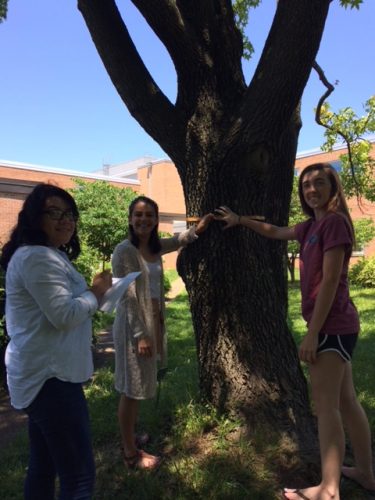The 2018 Project Learning Tree International Coordinators’ Conference was held June 4-7 in Cody, Wyoming. Now in its 32nd year, our annual conference provides professional development, networking, and information about new initiatives to PLT’s partners who deliver high quality environmental education programming to educators across the country and internationally, too.
A New Home with SFI Brings Opportunities for Growth
In July 2017, PLT joined forces with the Sustainable Forestry Initiative as its new home. This conference provided PLT Coordinators and leaders from across the United States, Japan, and Mexico with the chance to get to know the people and programs of SFI.
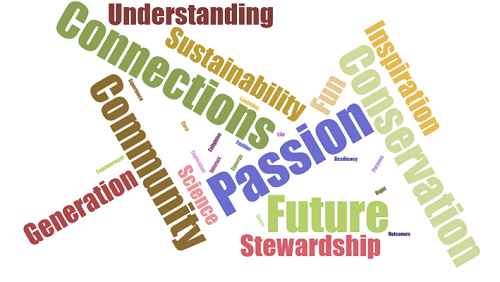 “PLT’s future is bright,” said Kathy Abusow, President and CEO of the Sustainable Forestry Initiative, who participated throughout the event. “SFI is sincere in our efforts to help make PLT the best it can be. The PLT network is an impressive, diverse and dynamic group of individuals who do amazing work. Their passion for environmental education and inspiring the next generation is evident. It was thrilling to witness the great excitement we share for building on PLT’s strong foundation and exploring numerous opportunities for growth.”
“PLT’s future is bright,” said Kathy Abusow, President and CEO of the Sustainable Forestry Initiative, who participated throughout the event. “SFI is sincere in our efforts to help make PLT the best it can be. The PLT network is an impressive, diverse and dynamic group of individuals who do amazing work. Their passion for environmental education and inspiring the next generation is evident. It was thrilling to witness the great excitement we share for building on PLT’s strong foundation and exploring numerous opportunities for growth.”
Conference participants reflected on the many ways that PLT helps them to meet their personal, professional, and organizational goals. Ultimately, the network is committed to educating the next generation to be well-informed stewards for our forests and other natural resources.
Some of the opportunities identified for growing the reach of PLT were:
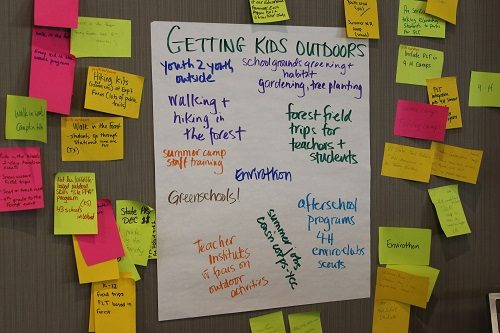
- getting more kids outdoors
- reaching more college students studying to become educators
- creating more pathways to green jobs
- ensuring our programs meet the needs of diverse audiences
- enhancing society’s health and wellbeing through access to nature.
“This conference marked a significant milestone,” said Esther Cowles, Senior Director of Education Programs for PLT and SFI. “PLT’s new home with SFI is already opening a lot of doors and we are excited to see new state and national partnerships and sponsors. I think people across our network feel confident in our new beginning and see SFI as a land of opportunities for PLT”
“Thank You” to Our Conference Sponsors
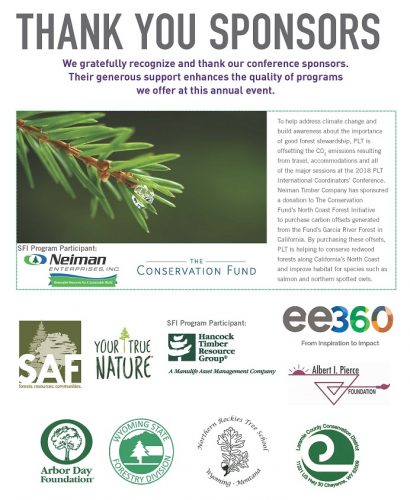 The quality of PLT’s conference is enriched by the generous support of several sponsors.
The quality of PLT’s conference is enriched by the generous support of several sponsors.
The Arbor Day Foundation (ADF) is a new national PLT partner who sponsored our opening reception. ADF Program Director Michelle Scribner presented a session about ADF’s new recognition program for K-12 school students to plant, nurture, and celebrate trees.
Your True Nature (YTN) provided us all a Yellowstone Nature Journal and gift packet full of co-branded “Advice” products that are also widely available to all PLT educators with a 30% discount. Go to www.yourtruenature.com/plt and enter the code EDUCATOR-PLTDIS. Thank you to founder Ilan Shamir and Melody Dawn for joining us at the conference.
Neiman Enterprises, a South Dakota/Wyoming integrated business and SFI Program Participant, provided the wood for PLT-engraved trivets and they sponsored carbon emission offsets through the Conservation Fund’s North Coast Forest Initiative.
Hancock Natural Resource Group, another SFI Program Participant, sponsored the session “Connecting with SFI’s Network” and we welcomed Heather Druffel, Hancock’s Education and Outreach Forester from Washington State.
ee360 is an ambitious five-year strategy to bring innovative leaders in the environmental education field together through leadership clinics, webinars, online modules, professional development workshops, and conferences like PLT’s. Funded by the US EPA and managed by our long-time friends at the North American Association for Environmental Education (NAAEE), we were pleased to have Operations and Program manager, Drew Price, representing NAAEE.
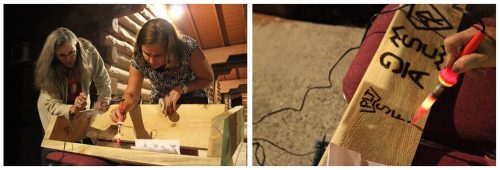 The Albert I. Pierce Foundation is also a long-time friend and supporter of PLT. Under the leadership of Deb Thrall, we are grateful for their years of support for this conference, and for funding an outdoor classroom this year at Sundance Elementary School in Wyoming. As part of this project, conference attendees were invited to create their own state’s “brand” that we burned onto an Aldo Leopold bench for the school’s outdoor classroom.
The Albert I. Pierce Foundation is also a long-time friend and supporter of PLT. Under the leadership of Deb Thrall, we are grateful for their years of support for this conference, and for funding an outdoor classroom this year at Sundance Elementary School in Wyoming. As part of this project, conference attendees were invited to create their own state’s “brand” that we burned onto an Aldo Leopold bench for the school’s outdoor classroom.
In addition to these sponsors, WY PLT received additional support for hosting the conference:
- Laramie County Conservation District
- Northern Rockies Tree School
- Wyoming State Forestry Division
- Wyoming/Colorado chapter of the Society of American Foresters
More Highlights from the PLT Conference
Seventeen Concurrent and ten Show and Tell sessions provided opportunities for members of the PLT network to learn from each other to enhance their state programs.
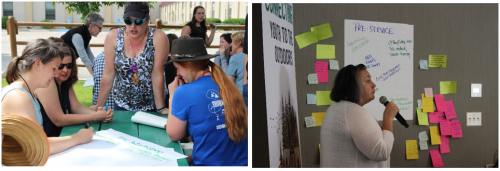 Here are just a few highlights:
Here are just a few highlights:
- Several states and Mexico shared how they have created supplemental guides to PLT activities that focus on their unique, local environment.
- Texas PLT explained Phenomena Based Learning, a new science education method that has rich opportunities for teachers to incorporate inquiry and STEM into their lesson planning.
- A session on state forest literacy plans provided ideas for incorporating teaching about forests into classroom programs.
- Opportunities were identified for building connections among the PLT network, SFI Program Participants, and SFI Implementation Committees, including grants to support community partnerships and engagement.
- A preconference session introduced the ADDIE instructional design model as an effective tool in planning and implementing professional development programs.
Getting to Know Wyoming
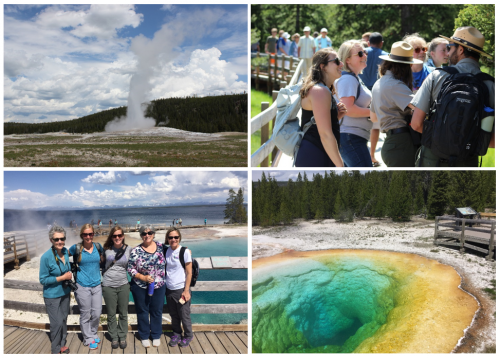 Our keynote speakers provided a warm Wyoming welcome. State Forester Bill Crapser and Kristie Salzmann, Shoshone National Forest Public Affairs Officer, shared the challenges and rewards of managing forest land for multiple uses.
Our keynote speakers provided a warm Wyoming welcome. State Forester Bill Crapser and Kristie Salzmann, Shoshone National Forest Public Affairs Officer, shared the challenges and rewards of managing forest land for multiple uses.
Guest speaker Dan Thompson, Wyoming Game and Fish Department, shared some amazing slides and video that showed the expansion of grizzly bears and mountain lions in and around Yellowstone. He stressed the importance of public education to manage wildlife in harmony with human populations.
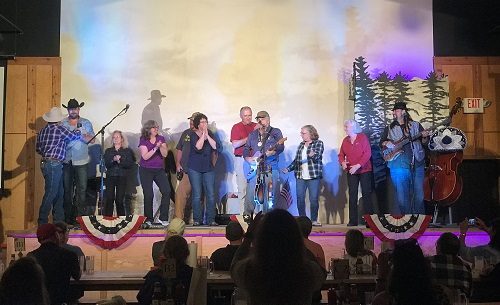 An amazing full-day visit into Yellowstone National Park included sightings of grizzly bears, bison, elk, and deer; time to witness Old Faithful, other geysers, and hot springs; and a chance to enjoy Yellowstone Lake that’s been shaped by lava flows within the caldera. A knowledgeable interpretative guide deepened our understanding of the natural history of this first national park.
An amazing full-day visit into Yellowstone National Park included sightings of grizzly bears, bison, elk, and deer; time to witness Old Faithful, other geysers, and hot springs; and a chance to enjoy Yellowstone Lake that’s been shaped by lava flows within the caldera. A knowledgeable interpretative guide deepened our understanding of the natural history of this first national park.
Dinner and the Triple C Cowboys Band at the Cody Cattle Company—with a special PLT-only encore!
Awards and Recognition
Always a highlight at our conference, we were honored to recognize the following individuals and organizations this year:
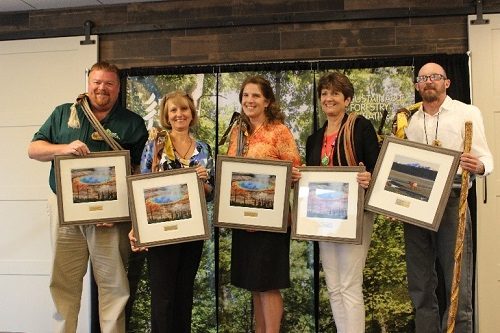 Leaders in Education — PLT’s new Leadership in Education Award is designed to recognize individuals and partners who have made significant contributions to support PLT programs and initiatives at the state-level. This year’s winners are Robin Will (Supervisory Ranger, St. Marks National Wildlife Refuge, St. Marks, FL), Holly McKenzie (Consulting Forester, Montana Women in Timber, Columbia Falls, MT), Jason Vlcan (Visitor Information Specialist, National Historic Trails Interpretative Center, Casper, WY), Nancy Loewenstein (Extension Specialist, Auburn University School of Forestry and Wildlife Sciences, Auburn, AL), and The Ross Foundation (Arkadelphia, AR). Read more.
Leaders in Education — PLT’s new Leadership in Education Award is designed to recognize individuals and partners who have made significant contributions to support PLT programs and initiatives at the state-level. This year’s winners are Robin Will (Supervisory Ranger, St. Marks National Wildlife Refuge, St. Marks, FL), Holly McKenzie (Consulting Forester, Montana Women in Timber, Columbia Falls, MT), Jason Vlcan (Visitor Information Specialist, National Historic Trails Interpretative Center, Casper, WY), Nancy Loewenstein (Extension Specialist, Auburn University School of Forestry and Wildlife Sciences, Auburn, AL), and The Ross Foundation (Arkadelphia, AR). Read more.
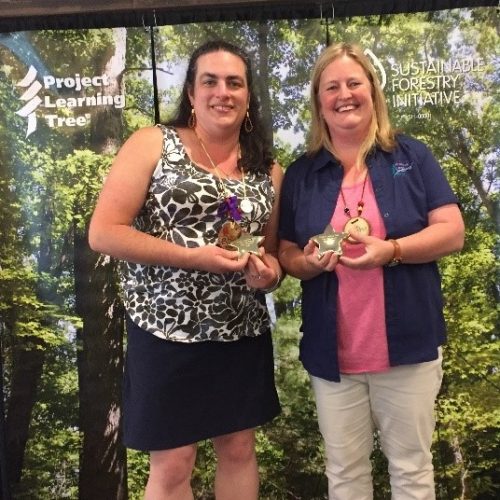 Gold Stars — Since 1995, National PLT has presented Gold Stars to outstanding PLT Coordinators for their years of exemplary service. We are an immeasurably better organization because of their extraordinary personal and professional qualities, commitment and dedication to PLT, energy and expertise. This year, Gold Stars were awarded to (pictured from left to right) Betsy Ukeritis (Inter-Regional Environmental Educator with New York State Department of Environmental Conservation) and Misty Bowie (Environmental Education Director at the Texas Forestry Association).
Gold Stars — Since 1995, National PLT has presented Gold Stars to outstanding PLT Coordinators for their years of exemplary service. We are an immeasurably better organization because of their extraordinary personal and professional qualities, commitment and dedication to PLT, energy and expertise. This year, Gold Stars were awarded to (pictured from left to right) Betsy Ukeritis (Inter-Regional Environmental Educator with New York State Department of Environmental Conservation) and Misty Bowie (Environmental Education Director at the Texas Forestry Association).
Last But Not Least, A Big ‘Thank You!’ To Wyoming PLT
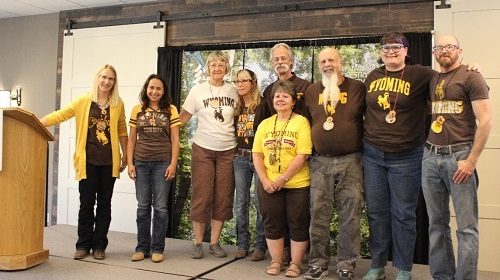 We especially want to extend our gratitude to the Wyoming PLT team for their wonderful job and hard work in helping to organize a truly outstanding PLT conference. From their warmth and hospitality, to pride in their state, to the beautiful table decorations, painted rocks, and fun outdoor activities at the Hospitality Suite, they sure did show us a great time!
We especially want to extend our gratitude to the Wyoming PLT team for their wonderful job and hard work in helping to organize a truly outstanding PLT conference. From their warmth and hospitality, to pride in their state, to the beautiful table decorations, painted rocks, and fun outdoor activities at the Hospitality Suite, they sure did show us a great time!
For more photos, see our photo album on PLT’s Facebook page.
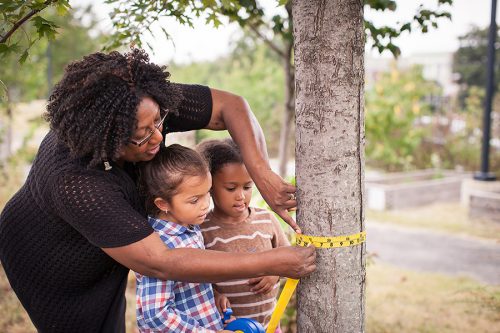
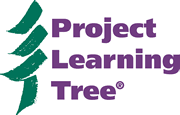
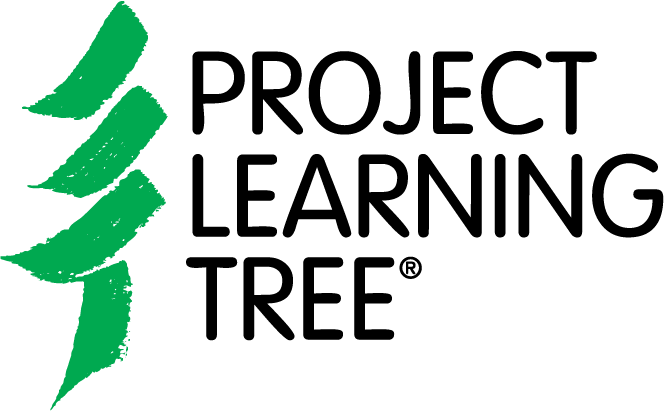
 Project Learning Tree’s (PLT) Energy in Ecosystems curriculum for grades 3-5 has been selected a Learning® Magazine 2019 Teachers’ ChoiceSM Award (TCA) for the Classroom winner.
Project Learning Tree’s (PLT) Energy in Ecosystems curriculum for grades 3-5 has been selected a Learning® Magazine 2019 Teachers’ ChoiceSM Award (TCA) for the Classroom winner. 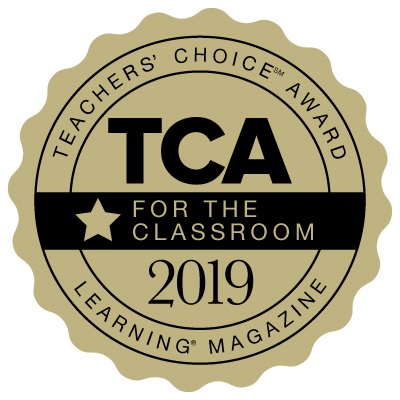 Project Learning Tree’s Energy in Ecosystems curriculum for grades 3-5 has been selected a Learning ® Magazine 2019 Teachers’ ChoiceSM Award for the Classroom winner! Project Learning Tree is an initiative of the Sustainable Forestry Initiative.
Project Learning Tree’s Energy in Ecosystems curriculum for grades 3-5 has been selected a Learning ® Magazine 2019 Teachers’ ChoiceSM Award for the Classroom winner! Project Learning Tree is an initiative of the Sustainable Forestry Initiative.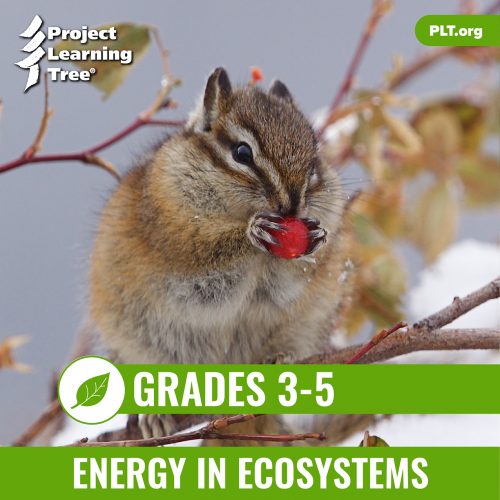 About Energy in Ecosystems for Grades 3-5
About Energy in Ecosystems for Grades 3-5 earning Tree are delighted to announce that we are teaming up to help further our organizations’ collective impact on environmental education! Our missions share fundamental values and principles, including growing a love of nature and fostering meaningful outdoor learning experiences.
earning Tree are delighted to announce that we are teaming up to help further our organizations’ collective impact on environmental education! Our missions share fundamental values and principles, including growing a love of nature and fostering meaningful outdoor learning experiences. To repay the earth for its generosity, all YTN products use recycled paper and are 100% replanted with nearly 120,000 trees that have already taken root! Your PLT orders can make a difference in many ways. YTN will plant additional trees for each PLT order over $30 and report back each year how many trees will be planted from PLT orders!
To repay the earth for its generosity, all YTN products use recycled paper and are 100% replanted with nearly 120,000 trees that have already taken root! Your PLT orders can make a difference in many ways. YTN will plant additional trees for each PLT order over $30 and report back each year how many trees will be planted from PLT orders!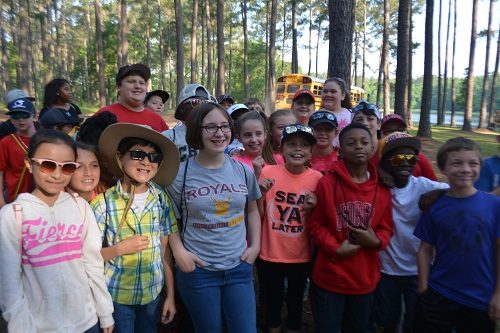 Thanks to the Sustainable Forestry Initiative, PLT has produced two new promotional videos to illustrate how PLT teaches youth about forests and the environment through hands-on, inter-disciplinary learning experiences that are correlated to classroom standards and get children outside.
Thanks to the Sustainable Forestry Initiative, PLT has produced two new promotional videos to illustrate how PLT teaches youth about forests and the environment through hands-on, inter-disciplinary learning experiences that are correlated to classroom standards and get children outside. “PLT’s future is bright,” said Kathy Abusow, President and CEO of the Sustainable Forestry Initiative, who participated throughout the event. “SFI is sincere in our efforts to help make PLT the best it can be. The PLT network is an impressive, diverse and dynamic group of individuals who do amazing work. Their passion for environmental education and inspiring the next generation is evident. It was thrilling to witness the great excitement we share for building on PLT’s strong foundation and exploring numerous opportunities for growth.”
“PLT’s future is bright,” said Kathy Abusow, President and CEO of the Sustainable Forestry Initiative, who participated throughout the event. “SFI is sincere in our efforts to help make PLT the best it can be. The PLT network is an impressive, diverse and dynamic group of individuals who do amazing work. Their passion for environmental education and inspiring the next generation is evident. It was thrilling to witness the great excitement we share for building on PLT’s strong foundation and exploring numerous opportunities for growth.”
 The quality of PLT’s conference is enriched by the generous support of several sponsors.
The quality of PLT’s conference is enriched by the generous support of several sponsors. The Albert I. Pierce Foundation is also a long-time friend and supporter of PLT. Under the leadership of Deb Thrall, we are grateful for their years of support for this conference, and for funding an outdoor classroom this year at Sundance Elementary School in Wyoming. As part of this project, conference attendees were invited to create their own state’s “brand” that we burned onto an Aldo Leopold bench for the school’s outdoor classroom.
The Albert I. Pierce Foundation is also a long-time friend and supporter of PLT. Under the leadership of Deb Thrall, we are grateful for their years of support for this conference, and for funding an outdoor classroom this year at Sundance Elementary School in Wyoming. As part of this project, conference attendees were invited to create their own state’s “brand” that we burned onto an Aldo Leopold bench for the school’s outdoor classroom. Here are just a few highlights:
Here are just a few highlights: Our keynote speakers provided a warm Wyoming welcome. State Forester Bill Crapser and Kristie Salzmann, Shoshone National Forest Public Affairs Officer, shared the challenges and rewards of managing forest land for multiple uses.
Our keynote speakers provided a warm Wyoming welcome. State Forester Bill Crapser and Kristie Salzmann, Shoshone National Forest Public Affairs Officer, shared the challenges and rewards of managing forest land for multiple uses. An amazing full-day visit into Yellowstone National Park included sightings of grizzly bears, bison, elk, and deer; time to witness Old Faithful, other geysers, and hot springs; and a chance to enjoy Yellowstone Lake that’s been shaped by lava flows within the caldera. A knowledgeable interpretative guide deepened our understanding of the natural history of this first national park.
An amazing full-day visit into Yellowstone National Park included sightings of grizzly bears, bison, elk, and deer; time to witness Old Faithful, other geysers, and hot springs; and a chance to enjoy Yellowstone Lake that’s been shaped by lava flows within the caldera. A knowledgeable interpretative guide deepened our understanding of the natural history of this first national park. Leaders in Education — PLT’s new Leadership in Education Award is designed to recognize individuals and partners who have made significant contributions to support PLT programs and initiatives at the state-level. This year’s winners are Robin Will (Supervisory Ranger, St. Marks National Wildlife Refuge, St. Marks, FL), Holly McKenzie (Consulting Forester, Montana Women in Timber, Columbia Falls, MT), Jason Vlcan (Visitor Information Specialist, National Historic Trails Interpretative Center, Casper, WY), Nancy Loewenstein (Extension Specialist, Auburn University School of Forestry and Wildlife Sciences, Auburn, AL), and The Ross Foundation (Arkadelphia, AR).
Leaders in Education — PLT’s new Leadership in Education Award is designed to recognize individuals and partners who have made significant contributions to support PLT programs and initiatives at the state-level. This year’s winners are Robin Will (Supervisory Ranger, St. Marks National Wildlife Refuge, St. Marks, FL), Holly McKenzie (Consulting Forester, Montana Women in Timber, Columbia Falls, MT), Jason Vlcan (Visitor Information Specialist, National Historic Trails Interpretative Center, Casper, WY), Nancy Loewenstein (Extension Specialist, Auburn University School of Forestry and Wildlife Sciences, Auburn, AL), and The Ross Foundation (Arkadelphia, AR).  Gold Stars — Since 1995, National PLT has presented Gold Stars to outstanding PLT Coordinators for their years of exemplary service. We are an immeasurably better organization because of their extraordinary personal and professional qualities, commitment and dedication to PLT, energy and expertise. This year, Gold Stars were awarded to (pictured from left to right) Betsy Ukeritis (Inter-Regional Environmental Educator with New York State Department of Environmental Conservation) and Misty Bowie (Environmental Education Director at the Texas Forestry Association).
Gold Stars — Since 1995, National PLT has presented Gold Stars to outstanding PLT Coordinators for their years of exemplary service. We are an immeasurably better organization because of their extraordinary personal and professional qualities, commitment and dedication to PLT, energy and expertise. This year, Gold Stars were awarded to (pictured from left to right) Betsy Ukeritis (Inter-Regional Environmental Educator with New York State Department of Environmental Conservation) and Misty Bowie (Environmental Education Director at the Texas Forestry Association). We especially want to extend our gratitude to the Wyoming PLT team for their wonderful job and hard work in helping to organize a truly outstanding PLT conference. From their warmth and hospitality, to pride in their state, to the beautiful table decorations, painted rocks, and fun outdoor activities at the Hospitality Suite, they sure did show us a great time!
We especially want to extend our gratitude to the Wyoming PLT team for their wonderful job and hard work in helping to organize a truly outstanding PLT conference. From their warmth and hospitality, to pride in their state, to the beautiful table decorations, painted rocks, and fun outdoor activities at the Hospitality Suite, they sure did show us a great time!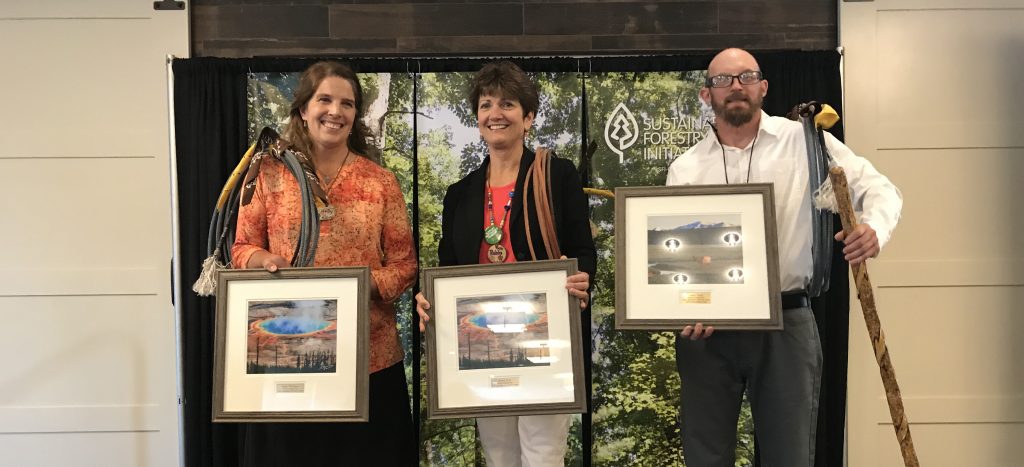
 ancy Loewenstein, Ph.D.
ancy Loewenstein, Ph.D.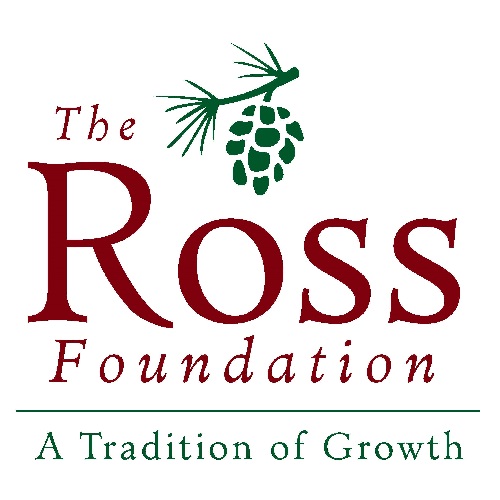 The Ross Foundation
The Ross Foundation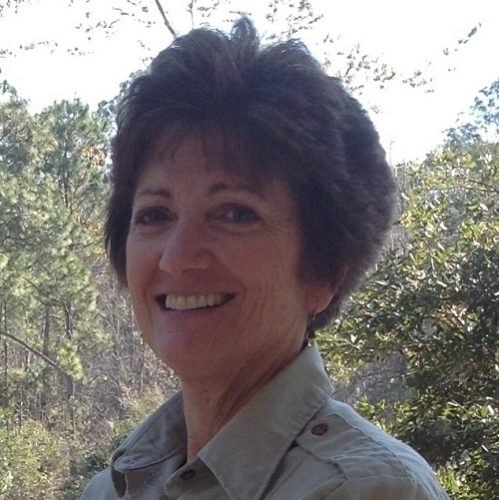 Robin Will
Robin Will Holly McKenzie
Holly McKenzie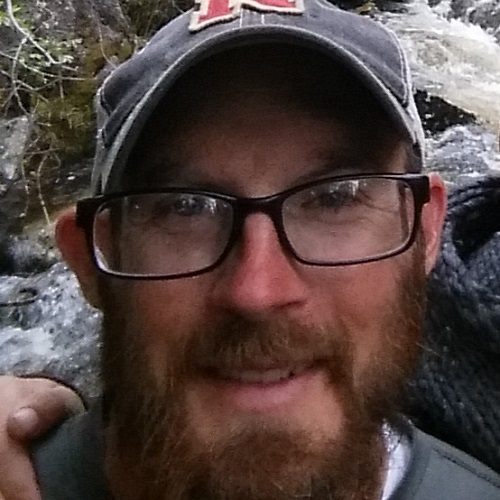 Jason Vlcan
Jason Vlcan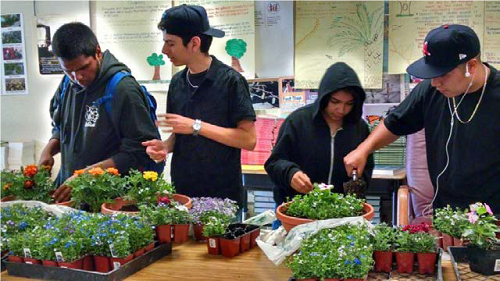 Jack London Community Day School, Valley Glen, CA
Jack London Community Day School, Valley Glen, CA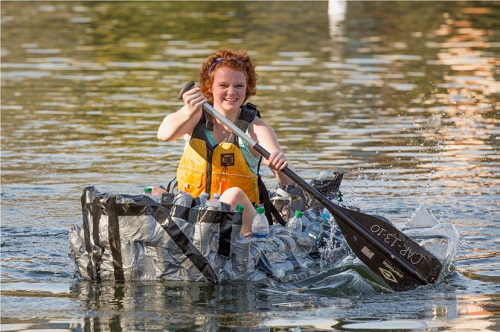 Georgia Southern University, Statesboro, GA
Georgia Southern University, Statesboro, GA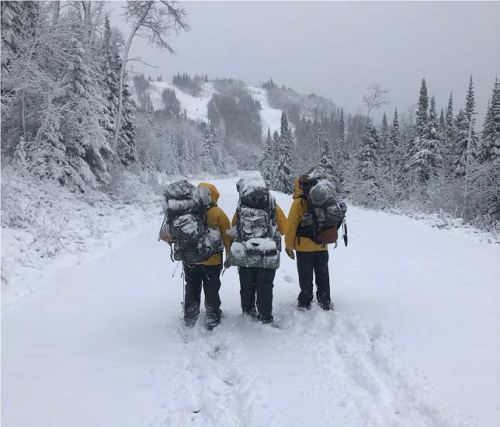 River’s Edge Academy School, St. Paul, MN
River’s Edge Academy School, St. Paul, MN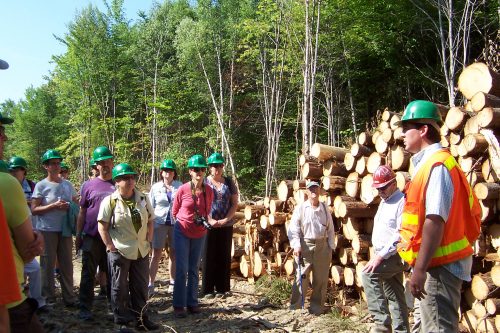 Are you interested in touring your state’s forests and wood product mills? Do you want to learn more about sustainable forestry and how to connect what you learn in the field to the classroom? This summer, immerse yourself in a multi-day teachers’ tour that includes training in curriculum materials with links to all the current academic standards.
Are you interested in touring your state’s forests and wood product mills? Do you want to learn more about sustainable forestry and how to connect what you learn in the field to the classroom? This summer, immerse yourself in a multi-day teachers’ tour that includes training in curriculum materials with links to all the current academic standards. Project Learning Tree has published a new set of activities designed to engage middle and high school students in STEM (science, technology, engineering, and math) as they calculate the economic and environmental benefits of trees. Students input data they collect into a free online tool that calculates the dollar value of the benefits provided by a tree, or a set of trees.
Project Learning Tree has published a new set of activities designed to engage middle and high school students in STEM (science, technology, engineering, and math) as they calculate the economic and environmental benefits of trees. Students input data they collect into a free online tool that calculates the dollar value of the benefits provided by a tree, or a set of trees.